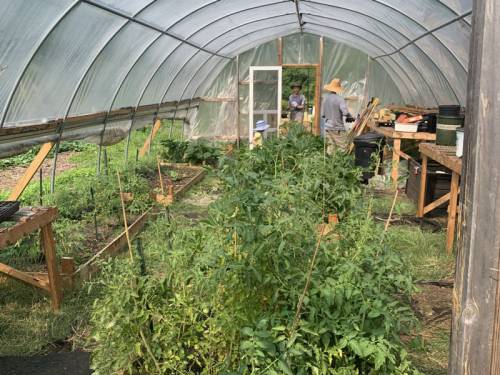Ask questions and keep it simple
May 20, 2022

Getty Images
I have never used the praying hands emoji as much as I have the past two years. I serve as a chaplain in a city trauma center, so I pray a lot. But the COVID-19 pandemic provoked more need for prayer than I have ever felt before; thus, the use of the praying hands emoji increased as the pandemic continued.
As people of faith, when we come to the edge of what we can fix on our own, we draw near to God in prayer. And when we are with someone else amid their suffering, we know to bring them to God in prayer. It’s precisely when the stakes are high that we don’t want to mess up the prayer. It’s natural to worry: What if we say the wrong thing so God won’t read our text or open our snap? What if the prayer doesn’t work and nothing changes?
Mark 2:1–12 makes a great prayer road map. The day began with five friends realizing that Jesus had come to town. One of them was paralyzed; four were able-bodied. All of them agreed that it would be good to get closer to Jesus. So, they conspired to make that happen with four of them carrying the one paralyzed fellow on a mat. Mark is sparse on details, but we get the picture: The whole town showed up to see Jesus, gridlock at the front door, rerouting, perilous scrambling up onto the roof, ripping open a hole and lowering the friend on the mat to place him at the feet of Jesus. And Jesus took it from there.
What we learn is that praying for others is collaborative. At first, we see the collaboration between a person who was paralyzed and the able-bodied friends. And by the end, we see a collaboration between Jesus and the person on the mat. We see the able-bodied friends beginning their prayer for their paralyzed friend with the obvious physical considerations: getting him from point A to point B. Sometimes our prayers are practical like this, too, such as doing the grocery run for our homebound friend or going to a follow-up appointment to listen to the test results.
Unlike a text message loaded with praying hands emojis, praying for others requires actual conversation and permission. We need to clarify what our friend really wants. A basic question like “Would you like to pray together?” is helpful. Maybe they will say, “No, but keep me in your prayers” or “Add me to the prayer list at church” or “Yes please! Let’s pray together!” But first begin by asking for permission and clarifying the prayer need. If you are physically present with someone you are praying for, be mindful of asking if physical touch is welcomed: “Is it OK if we hold hands?” Sometimes people have hidden pain that we won’t know about until we ask.
In the end, the four friends seeking healing for their paralyzed friend brought them all to the feet of Jesus. Prayer for others does that. Remember, though, we take turns in these roles: Some days, we are the ones offering to pray. Other days, we are the people in need of prayer. And some days, we are all the above.
Elizabeth Gibbs Zehnder serves as Presbyterian staff chaplain at LAC+USC Medical Center, Los Angeles, providing spiritual support to patients, their families and the hospital staff.
Let us join in prayer for:
PC(USA) Agencies’ Staff
Effie Shipp, Assistant, Credit Operations, Presbyterian Investment & Loan Program
Natalie Shilstut, Director, Programs & Services, Presbyterian Historical Society
Let us pray
Gracious God, grant wisdom as we explore new ways of serving. Though none follow your path perfectly, we know your grace goes with us on the journey. Help us to serve others along the way. Amen.
 Gardening began for me as a personal spiritual practice. Something about having my hands in the dirt grounded me. As I began getting more serious about it, I began seeing how food intersects many of the areas of justice, from race and immigration to ecology and wealth inequality. I saw that growing food was a way to effect change on a local level as well as a place to start conversations about larger systemic changes. When done well, gardening can be both a means of connecting to the Creator and to our neighbors.
Gardening began for me as a personal spiritual practice. Something about having my hands in the dirt grounded me. As I began getting more serious about it, I began seeing how food intersects many of the areas of justice, from race and immigration to ecology and wealth inequality. I saw that growing food was a way to effect change on a local level as well as a place to start conversations about larger systemic changes. When done well, gardening can be both a means of connecting to the Creator and to our neighbors.




